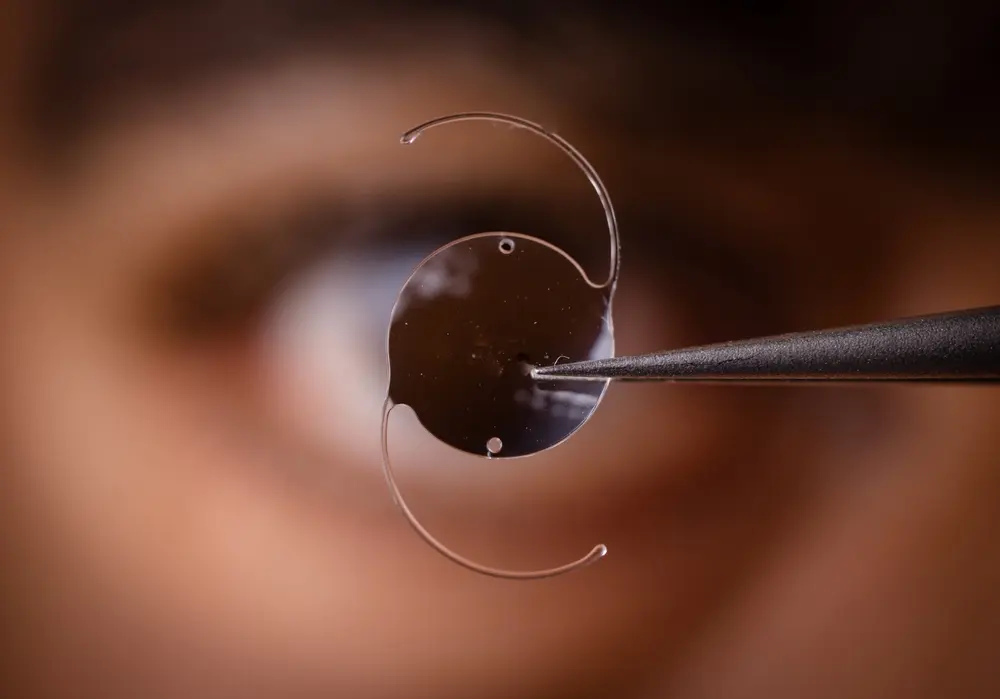Neonatal Brain Bleeds – Intracranial/ Intraventricular Hemorrhage
 The birth of a child is both a rewarding and stressful experience. All expectant mothers want childbirth to go smoothly, but unfortunately, far too many childbirths have complications that cause newborns to suffer injuries. One type of birth injury that can be very serious is a neonatal brain bleed, which occurs when the blood vessels in a newborn’s brain break and bleed into brain tissue.
The birth of a child is both a rewarding and stressful experience. All expectant mothers want childbirth to go smoothly, but unfortunately, far too many childbirths have complications that cause newborns to suffer injuries. One type of birth injury that can be very serious is a neonatal brain bleed, which occurs when the blood vessels in a newborn’s brain break and bleed into brain tissue.
While not every neonatal brain bleed is serious enough to cause permanent damage, some brain bleeds are severe enough to require extensive medical treatment and cause long-lasting harm. Both medical treatment and harm, both physical and mental, are costly throughout an injured child’s life.
Understanding Neonatal Brain Bleeds
Neonatal brain bleeds are also known as intracranial hemorrhages (ICH) and intraventricular hemorrhages (IVH), depending on the location of the bleeding. ICH brain bleeds are within the skull, while IVH brain bleeds are deeper within the brain. Any newborn baby can experience a brain bleed, but premature babies are more susceptible to brain bleeds than babies born to term.
Additionally, babies born with the assistance of forceps and/or a vacuum extractor are more likely to sustain brain bleeds than babies born without the assistance of these tools. Babies born with the assistance of any tools, such as forceps or a vacuum extractor, should be monitored following birth to assess brain inflammation. The circumference of a baby’s head is routinely measured as one means to test for swelling and inflammation.
There are two general types of neonatal brain bleeds – arterial hemorrhages and venous hemorrhages. As the term suggests, an arterial hemorrhage affects the arteries. A venous hemorrhage affects the veins that return blood to the heart. Arterial hemorrhages are often more serious than venous hemorrhages as they are difficult to control.
Also, arterial hemorrhages can lead to additional oxygen loss, which can worsen damage to a newborn’s brain. Moreover, babies who experience other complications at birth are at an increased risk of suffering from some type of brain bleed. As such, the conduct of the physician who delivers a baby, along with the conduct of other medical professionals involved with the delivery of a baby, is often carefully scrutinized when a baby sustains serious birth injuries, including a brain herniation.
The Grades of Neonatal ICH/IVH Brain Bleeds
Neonatal brain injuries are categorized by grade, with grades 1 and 2 being less severe and grades 3 and 4 being more severe. With grades 1 and 2, the neonatal brain bleed is considered mild and not likely to result in serious or permanent damage. Grade 1 and 2 neonatal brain bleeds do not affect the brain’s ventricles, which are responsible for producing cerebrospinal fluid.
Grade 3 and 4 neonatal brain bleeds often affect the brain’s ventricles, causing them to swell, which in turn can cause surrounding brain tissue to develop swelling. Swelling and inflammation of the brain can lead to catastrophic damage, and such an injury is especially critical for a newborn.
Further Classification of Neonatal ICH/IVH Brain Bleeds by Location
Neonatal brain bleeds are not only evaluated based on degree, and therefore, the severity of the brain bleed, but they are also identified based on the location of the bleed. For example, subarachnoid hemorrhage is one of the most common types of neonatal brain bleeds that happens when blood pools between the two innermost membranes the cover the brain – the arachnoid and pia mater. Additional types of neonatal brain bleeds, based on the location of the bleed, include the following:
- Epidural hematoma – occurs when there is bleeding between the skull and the dura mater, which is the first of several membranes covering the brain;
- Subdural hematoma – occurs when there is bleeding between the brain and dura mater;
- Intraparenchymal hemorrhage – occurs when there is bleeding inside the brain tissue;
- Intraventricular hemorrhage – occurs when there is bleeding inside the ventricles of the brain;
- Subgaleal hemorrhage – occurs when there is bleeding between the aponeurosis and periosteum, which are two membranes that surround the skull;
- Brain hernia / Brain Herniation – occurs when cerebrospinal fluid (CSF), blood, brain tissue shifts inside of the skull; and
- Intercranial Mass Effect – occurs when a hematoma exerts a mass effect (mass affect) on the brain, causing significant intracranial pressure causing a midline shift or a fatal brain herniation.
While all neonatal brain bleeds, regardless of location, can be dangerous and fatal, subgaleal hemorrhages are often the most severe, ending the life of many newborns each year.
The Long-Lasting Effects and Damages Resulting from Neonatal ICH/IVH Birth Injuries
ICH and IVH birth injuries can be minor and may heal on their own, but this is not always the case. More severe ICH and IVH brain bleeds can cause serious and permanent damage, if not fatal injuries. Any neonatal birth injury can cause or contribute to cause additional injuries. Examples of injuries that newborns may develop following a brain bleed include, but are not limited to, the following:
- Hypoxic-Ischemic Encephalopathy (HIE) – brain dysfunction that occurs when a newborn’s brain does not receive sufficient oxygen or blood flow, with the term “hypoxic” meaning death of tissue caused by lack of oxygen and “ischemic” meaning insufficient blood flow; the term “encephalopathy” means brain disorder
- Periventricular Leukomalacia (PVL) – a brain injury that occurs from a decrease in oxygen or blood flow to the periventricular region of the brain, which causes damage to the brain’s white matter; because PVL can lead to substantial damage and loss of key functions of the brain, it is not uncommon for a newborn to subsequently develop cerebral palsy (CP)
- Cerebral Palsy (CP) – injury to the “motor control” areas of the brain, affecting a child’s general movement, balance, posture, and coordination; CP ranges in severity from mild to moderate to severe, with some children only experiencing limitations on one side of the body and other children experiencing widespread limitations that require the use of a wheelchair
- Epilepsy/Seizure Disorders – HIE, as described above, is the most common cause of seizures in newborns, however, many different types of brain injuries can cause seizures; seizures occur when there is a decrease in energy production in the brain, which then results in over-excitement of brain impulses
- Intellectual/Developmental Disabilities – brain dysfunction that occurs when there are limitations on a child’s basic mental processing abilities; intellectual/developmental disabilities can cause a child to have a low IQ, limitations on communication skills; limitations on social skills, and limitations on the ability to take care of oneself
- Motor Disorders – brain injury resulting from damage to the brain’s motor system, with many motor problems being related to CP; however, a child may exhibit a motor disorder without having a diagnosis of CP
Once a brain injury happens, there is often no way to go back. Lucky newborns will suffer minor brain injuries that heal with time, but when neonatal brain injuries cause damage to key portions of the brain responsible for basic functions, the damage is often not reversible. A child who sustains neonatal brain bleeds and other neonatal brain injuries may require extensive medical treatment and therapy both throughout childhood and perhaps during adulthood as well. When physical and mental limitations prevent a child from adequately walking, talking, eating, and going to the bathroom alone, that child needs and deserves professional care.
Additional Damages Resulting from Neonatal Brain Bleeds
 Severe ICH and IVH neonatal brain bleeds cause not only physical damage but also emotional harm (to both the child and family members), as well as the generation of medical bills that exceed hundreds of thousands, if not millions, of dollars. The cost of treatment and therapy for children with severe injuries stemming from a neonatal brain bleed can easily reach six, seven or eight figures when such treatment and therapy continues throughout life.
Severe ICH and IVH neonatal brain bleeds cause not only physical damage but also emotional harm (to both the child and family members), as well as the generation of medical bills that exceed hundreds of thousands, if not millions, of dollars. The cost of treatment and therapy for children with severe injuries stemming from a neonatal brain bleed can easily reach six, seven or eight figures when such treatment and therapy continues throughout life.
Not only are families drowning in medical expenses. A child who sustains neonatal brain injuries may never have the opportunity to work, which is a loss at the chance to make a living. One or more parents of a child with brain injuries may have to stay home to care for the child rather than work, further financially straining a family. Parents and other family members may suffer from mental health issues, as the stress of raising a child with brain injuries can be insurmountable. The list of damages resulting from one, potentially preventable, neonatal brain bleed is endless.
When Medical Malpractice is to Blame for Neonatal ICH/IVH Birth Injuries
Some occurrences of ICH and IVH brain bleeds may happen in an otherwise routine vaginal delivery of a full-term baby. However, occurrences in normal or routine pregnancies are rare. In most cases, other factors, such a whether a baby is born premature, whether forceps or a vacuum is used during labor, and whether a mother or baby’s condition prior to birth, may contribute to the development of a neonatal brain bleed.
An obstetrician is held to a heightened standard of care, and any deviation from this standard of care that results in neonatal brain bleeds deserves scrutiny. Mistakes happen all the time, but preventable mistakes happen far too often that leave newborns with challenges before they even begin to live their lives. Obstetricians and other healthcare providers (such as nurses, anesthesiologists administering epidurals, and residents, among others) owe a duty of care to the mother and newborn child. A breach of this duty that subsequently causes harm to the mother and/or newborn – especially when the harm is permanent – is known as negligence. In the context of medicine, negligence is termed medical malpractice.
Examples of medical malpractice that can cause or contribute to cause neonatal brain bleeds include, among others, the following:
- Improper administration of Pitocin and other drugs given to induce labor, such as giving a mother too much of the medication and/or giving the medication too quickly;
- Failure to identify a newborn is in distress during labor and potentially lacking oxygen;
- Improper use of forceps and/or a vacuum to deliver a baby;
- Unnecessarily long labor; and
- Failure to identify a baby is in breech during labor.
Whether a healthcare provider is liable for acts of medical malpractice can only be determined by an experienced neonatal brain injury lawyer who can enlist the help of experts. Because the damages associated with neonatal brain bleeds and other brain injuries have permanent consequences, the stakes are high when pursuing a medical malpractice case. As such, parents who believe their child sustained a neonatal brain bleed and/or other neonatal injuries because of acts of medical malpractice should consult with an experienced medical malpractice legal professional.
The Statute of Limitations for ICH and IVH Birth Injury Medical Malpractice Claims
Statutes of limitations are laws that provide a specific timeframe for pursuing legal action for various matters. The statutes of limitations for medical malpractice claims often differ from the statutes of limitations for personal injury claims, product liability claims, and breach of contract claims, among others. Additionally, statutes of limitations vary from state to state, so a person injured in one state may not have as long to file a lawsuit as a person injured in another state. With medical malpractice claims involving minors under the age of eighteen (18), minors have until a certain number of years after their eighteenth birthday to file a lawsuit. For example, if the statute of limitations for medical malpractice in one state is two years, minors may have two years from the date they turn eighteen to file the lawsuit.
In many cases, parents of injured children bring medical malpractice lawsuits while they are still minors. Many reasons exist for pursuing a medical malpractice claim while a child is still a minor. Such reasons include, among others, the following:
- A child’s injuries are most evident at a younger age;
- A child’s medical expenses are becoming too much for a family to bear, and recovery through a lawsuit may help limit the financial stress;
- A parent or parents’ memories are fresher when a child is younger, and parents can more easily recall the pain and suffering a newborn sustained at birth and shortly thereafter; and
- A lawsuit and potential award of compensation can help establish a fund for a child’s future that goes beyond the need for medical treatment, such as housing costs and the general cost of living as an adult.
While many medical malpractice claims on behalf of a minor child are filed while the child is still a minor, many families wait until a child is a little older. The progression of damage resulting from the neonatal bleed is evident over a period of years. For example, a newborn’s limitations will not be as evident as a child aged four or five. Each medical malpractice case is unique. Therefore, the decision of when to file a medical malpractice case on behalf of an injured child will be dependent on the specific facts of that child’s case, and such a decision is often made in conjunction with an attorney’s guidance and advice.
How a Birth Injury Lawyer Can Help You Obtain Compensation for Your Child’s Injuries
If you are considering legal action for injuries your child sustained at birth, you may find the guidance and answers you need by speaking with a birth injury lawyer. ICH and IVH brain bleeds at birth are serious injuries that can have permanent consequences. Speaking with an attorney who handles birth injury claims is a good first step to gathering information on your legal rights as well as the legal rights of your child. While children generally have much longer to file a legal claim than adults, acting quickly to speak with a birth injury lawyer helps to ensure you have a good understanding of potential legal claims you can bring on behalf of your child.
What to Look for in a Neonatal Bleed Birth Injury Lawyer
Experience alone is not always sufficient to ensure a client is represented by a lawyer who can get the job done. Clients choosing a lawyer to represent a severely injured child and the child’s family should consider numerous factors and qualifications, such as, among others, the following:
- The lawyer’s track record of success, such as winning verdicts at trial along with substantial settlement awards for clients;
- The lawyer’s resources to effectively represent clients, such as having the capital needed to hire the best experts to support a client’s case;
- The size of a lawyer’s legal team, such as the number of lawyers and paralegals or legal assistants involved in the management of a client’s case, as birth injury cases require a substantial amount of work;
- A lawyer’s reputation in the legal community, both with fellow lawyers for plaintiffs and defendants as well as judges; and
- Having a reputation for providing not only excellent legal representation but quality customer service.
Overall, birth injury cases, including neonatal ICH and IVH brain bleed injury cases, require specialized knowledge in the area of birth injuries. Understanding the law is only one piece of the puzzle. The right lawyer also understands the science behind brain injuries and has the ability to communicate complicated science to juries. Complicated health conditions are not easy to explain to laypersons. As such, a lawyer who can help juries digest and comprehend a difficult subject is in a good position to help clients obtain the compensation they deserve for substantial pain and suffering.
Did your baby suffer a Neonatal Brain Bleed Injury?
Contact Parker Waichman LLP FOR A FREE CASE REVIEW
Parker Waichman LLP helps parents recover maximum compensation after their baby sustained a Neonatal Brain Bleed Injury caused by negligent medical care. Trust your loved one’s case with our birth injury lawsuits lawyers. For a free consultation, contact our law firm today by using our live chat or calling 800-968-7529.












 The birth of a child is both a rewarding and stressful experience. All expectant mothers want childbirth to go smoothly, but unfortunately, far too many childbirths have complications that cause newborns to suffer injuries. One type of birth injury that can be very serious is a neonatal brain bleed, which occurs when the blood vessels in a newborn’s brain break and bleed into brain tissue.
The birth of a child is both a rewarding and stressful experience. All expectant mothers want childbirth to go smoothly, but unfortunately, far too many childbirths have complications that cause newborns to suffer injuries. One type of birth injury that can be very serious is a neonatal brain bleed, which occurs when the blood vessels in a newborn’s brain break and bleed into brain tissue. Severe ICH and IVH neonatal brain bleeds cause not only physical damage but also emotional harm (to both the child and family members), as well as the generation of medical bills that exceed hundreds of thousands, if not millions, of dollars. The cost of treatment and therapy for children with severe injuries stemming from a neonatal brain bleed can easily reach six, seven or eight figures when such treatment and therapy continues throughout life.
Severe ICH and IVH neonatal brain bleeds cause not only physical damage but also emotional harm (to both the child and family members), as well as the generation of medical bills that exceed hundreds of thousands, if not millions, of dollars. The cost of treatment and therapy for children with severe injuries stemming from a neonatal brain bleed can easily reach six, seven or eight figures when such treatment and therapy continues throughout life.































